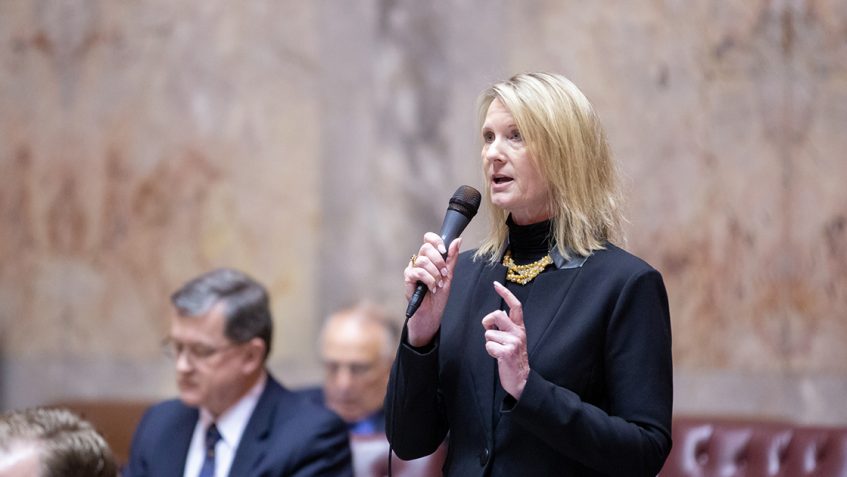Washington becomes first state to enact right to counsel in eviction cases
Low-income tenants will have access to free court-appointed attorneys to help them navigate the complex legal process.
OLYMPIA – A bill that would create new eviction protections for renters and expand programs to help landlords recover losses from unpaid rent as a result of the COVID-19 public health crisis was signed by Governor Inslee on Thursday.
Senate Bill 5160, sponsored by Sen. Patty Kuderer (D-Bellevue), has several provisions aimed at reducing homelessness, including a first-in-the-nation statewide right to counsel for low-income tenants facing an eviction.
Nationally, about 90% of landlords have access to legal representation in eviction proceedings while only about 10% of tenants have professional legal help, according to the Institute for Research on Poverty. Similar rates were found in Washington state eviction cases according to a University of Washington study. Tenants with legal representation are less likely to be evicted.
“This bill is about keeping tenants housed and helping landlords pay their bills,” said Kuderer. “Evictions are a leading cause of homelessness. It is far more cost-effective to provide legal counsel on the front end, when the tenancy can be saved, than paying the costs associated with homelessness following eviction.”
The current eviction moratorium for nonpayment of rent is scheduled to expire on June 30. The provisions of SB 5160 are designed to reduce the number of families entering into homelessness once the moratorium expires.
Kuderer believes more time will be needed to ensure all the resources are in place prior to the moratorium ending.
“We’re looking at a cliff come June 30 with thousands of families at risk of entering into homelessness,” said Kuderer. “The provisions in SB 5160 will certainly help, but more time is needed to get all the resources in place. We are working with the governor and other interested parties to determine how much time is needed to ensure we don’t see a wave of evictions on July 1.”
Other provisions in SB 5160 are intended to strengthen tenant protections related to the current public health emergency, including:
- Prohibiting housing decisions that affect a tenant’s right or ability to occupy a rental dwelling from taking into account a tenant’s nonpayment of rent that accrued during the COVID-19 pandemic,
- Prohibiting landlords from imposing late fees or other charges for nonpayment of rent for six months following the expiration of the current eviction moratorium, and,
- Prohibiting landlords from denying or discouraging rental applications based on medical history. This provision is in response to some landlords’ rejecting rental applications on the basis of the applicant’s having contracted or been exposed to COVID-19.
To help struggling landlords, the bill also expands use of the Landlord Mitigation Program to reimburse claims for unpaid rent up to $15,000 to recover rental arrears accrued during the public health emergency when certain tenants vacate or abandon tenancy and default on a repayment plan.
State and federal funding will be used to robustly fund emergency rental and utility assistance, as well as help with mortgage payments. The bill also expands the Eviction Resolution Pilot Program statewide on a two-year basis to provide tenants and landlords an opportunity to access resources and resolve the back rent before resorting to eviction.
Two sections of SB 5160 added by the House were vetoed by Governor Inslee. One of these sections would have created a new unfunded landlord entitlement costing taxpayers an estimated $1.5 billion.
Kuderer supported these vetoes, stating, “It was never the Senate’s intention to create an unfunded entitlement. When lawmakers write policies that guarantee payments from the state in certain situations, we need to make sure those guarantees are accounted for in our budget. This entitlement added by the House was not accounted for in either budget proposal.”
SB 5160 has an emergency clause, so the bill took effect immediately following approval from the governor.


